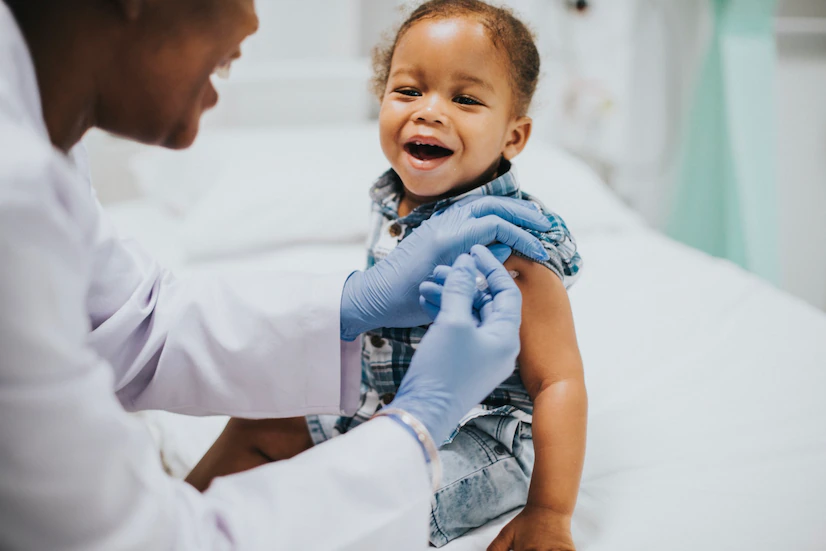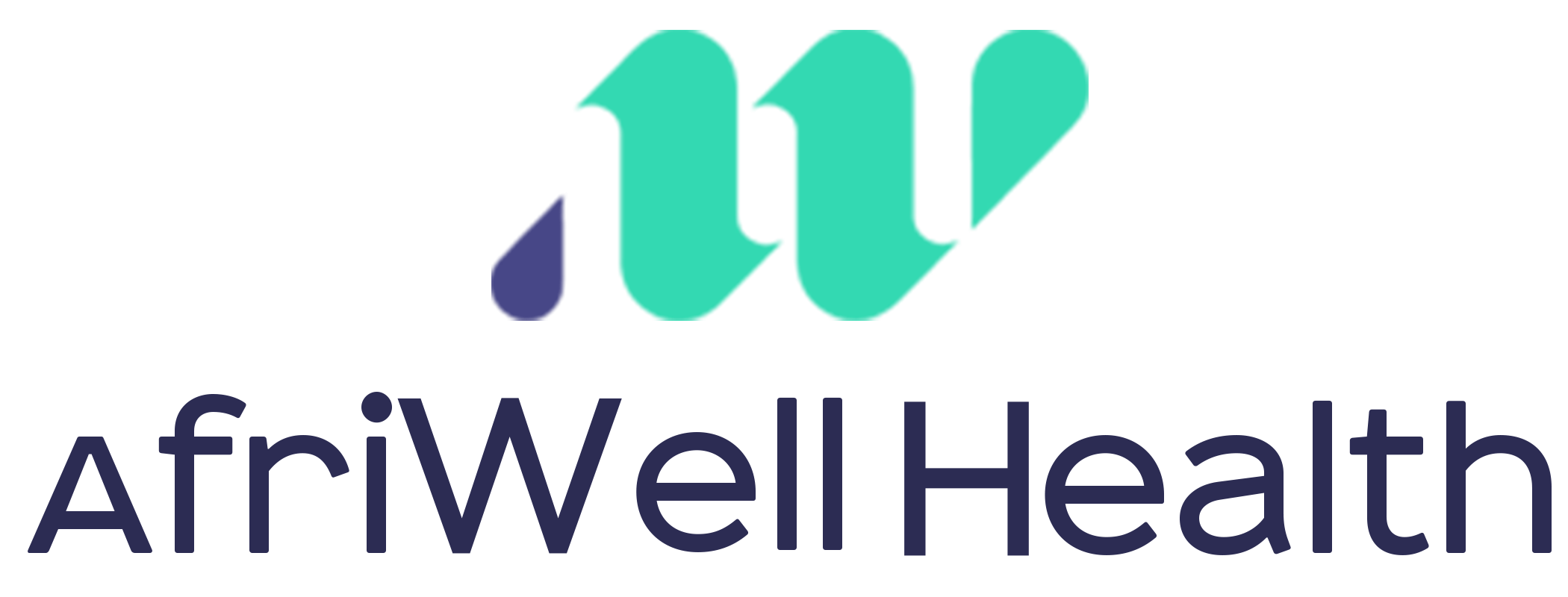Are your children up to date on their vaccines?
- joelleitoua

If only three vaccines are compulsory for infants, the others are recommended but just as important to protect against serious pathologies. The vaccination calendar indicates for each of the vaccines offered, the age and the number of injections necessary to be protected from these diseases.
Subscribe to the AfriWell Newsletter for reminder shots!
| At Birth | 2 months | 4 months | 11 months | 12 months | 16-18 month | 6 years | 11-13 Years |
Tuberculosis (BCG) | X |
|
|
|
|
|
|
|
Diphtheria Tetanus Pertussis Poliomyelitis (DTCaP) |
| X | X | X |
|
| X | X |
Haemophilus Influenzae b (hib) |
| X | X | X |
|
|
|
|
Hepatitis B (Hep B) |
| X | X | X |
|
|
|
|
Pneumococcus (PnC)) |
| X | X | X |
|
|
|
|
Meningococcal C |
|
|
|
| X |
|
|
|
Measles, Mumps, Rubella (MMR) |
|
|
|
| X | X |
|
|
Human papillomavirus (HPV) (Young girls) |
|
|
|
|
|
|
| X |
At birth?
– BCG: Vaccination can be carried out until the age of 15 years. A test to ensure that the child has not already been in contact with the bacteria responsible for tuberculosis must be carried out before vaccinating a child over 3 months old.
– Hepatitis B: a first dose of vaccine must be administered within 24 hours of the birth of children born to mothers who are seropositive for the virus. This vaccination is associated with an injection of specific antibodies. Two additional doses of vaccines will be injected at 1 and 6 months.
At 2 months ?
– Diphtheria, tetanus, poliomyelitis, pertussis, Hæmophilus influenzae b: a first injection of these vaccines (there is a vaccine to protect against the five diseases) is recommended for all children.
– Hepatitis B: a first injection of the vaccine is recommended for all children. This vaccine can be combined with the one protecting against diphtheria, tetanus, poliomyelitis, whooping cough and Haemophilus influenzae b.
– Pneumococci: a first injection of the vaccine protecting against 7 types of pneumococci is recommended for all children.
– Haemophilus Influenzae: a first injection of the vaccine is recommended for all children.
At 3 months ?
– Pneumococci: a second injection of the vaccine protecting against 7 types of pneumococci is recommended only for children at high risk of infection (children born prematurely, suffering from sickle cell disease, immune deficiencies, congenital heart disease infected with HIV. ..).
At 4 months ?
– Diphtheria, tetanus, poliomyelitis, pertussis, Hæmophilus influenzae b: A second injection of these vaccines (there is a vaccine to protect against the five diseases) is recommended for all children.
– Hepatitis B: a second injection of the vaccine is recommended for all children. This vaccine can be combined with the one protecting against diphtheria, tetanus, poliomyelitis, whooping cough and Haemophilus influenzae b.
– Pneumococci: a new injection of the vaccine protecting against 7 types of pneumococci is recommended for all children. Those who present a high risk of infection (children born prematurely, suffering from sickle cell disease, immune deficiencies, congenital heart disease, infected with HIV, etc.) will receive their third dose of vaccine, the others their second dose.
– Haemophilus Influenzae: a new injection of the vaccine is recommended for all children.
At 9 months ?
– Measles, mumps, rubella (MMR): a first injection of the vaccine is recommended only for infants cared for in the community. A second dose is then recommended between 12 and 15 months.
At 11 months ?
– Diphtheria, tetanus, poliomyelitis, pertussis, Hæmophilus influenzae b: A third injection of these vaccines (there is a vaccine to protect against the five diseases) is recommended for all children.
– Haemophilus Influenzae: a third injection of the vaccine is recommended for all children.
– Hepatitis B: a third injection of the vaccine is recommended for all children
– Pneumococci: a new injection of the vaccine protecting against 7 types of pneumococci is recommended for all children. Those at high risk of infection (children born prematurely, with sickle cell disease, immune deficiencies, congenital heart disease infected with HIV, etc.) will receive their fourth dose of vaccine, the others their third dose.
At 12 months ?
– Measles, mumps, rubella (MMR): a first injection of the vaccine is recommended. A second dose is then recommended at least one month later, and if possible before the age of 24 months.
– Meningococcal: a first dose is recommended for all children, the second must be done within two months
Between 12 and 15 months ?
– Measles, mumps, rubella (MMR): injection of a second dose of vaccine is recommended for infants who received a first dose at 9 months.
Between 16 and 18 months ?
– Measles, mumps, rubella (MMR): injection of a second dose of vaccine is recommended for infants who received a first dose at 12 months.
Is 6 years old ?
Diphtheria, tetanus, poliomyelitis: a booster injection is recommended for all children.
Between 11 and 13 years old ?
– Diphtheria, tetanus, poliomyelitis, whooping cough: a booster injection is recommended for all children.
– Hepatitis B: if vaccination was not carried out during childhood, three injections are necessary. The first two are carried out 1 month apart; the third, 5 to 12 months after the second injection.
– Human papillomavirus (HPV): the vaccine is recommended for all adolescent girls.
- joelleitoua
